
/
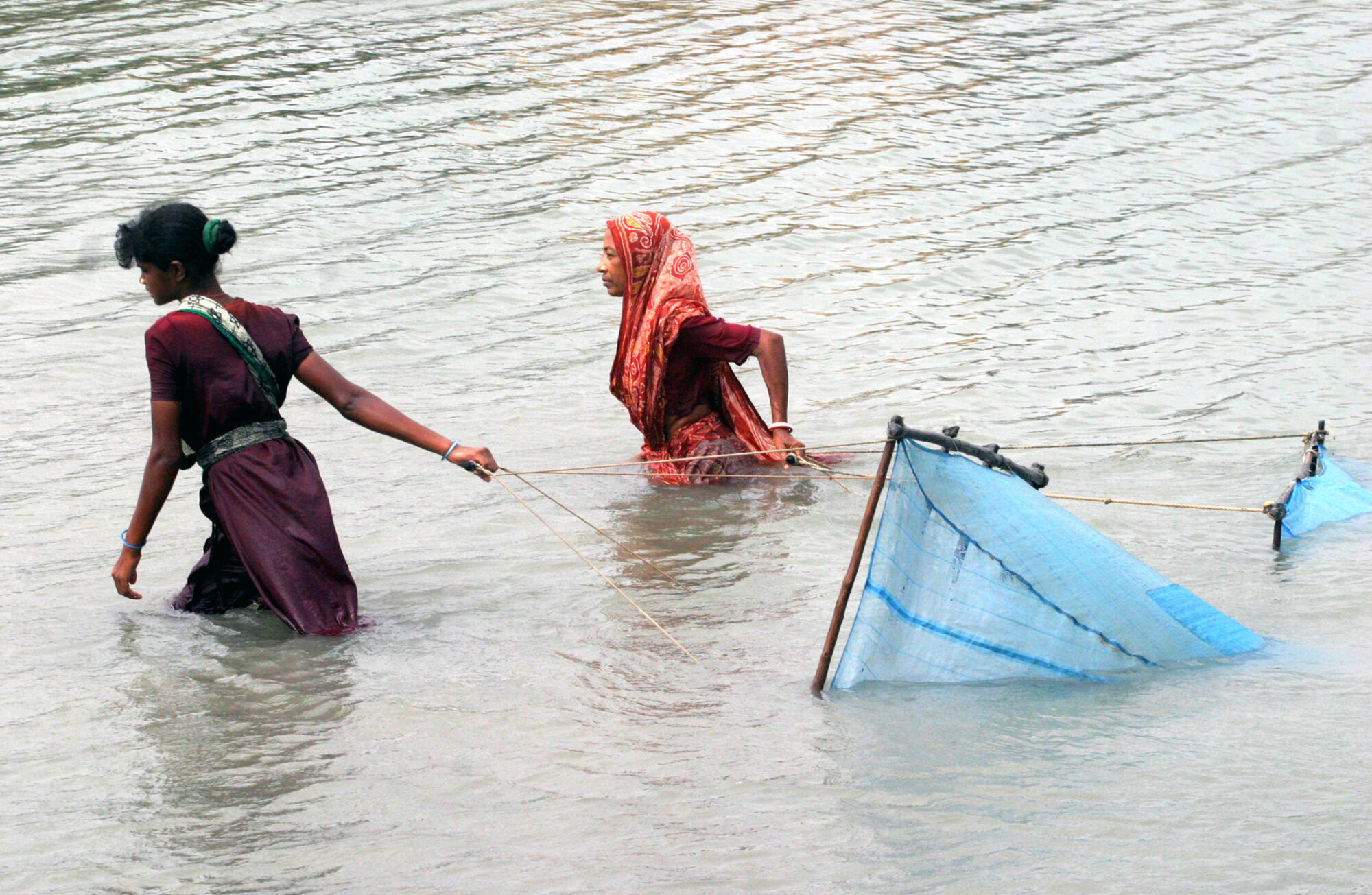
The livelihoods and safety of these women fishing shrimp from a river southwest of Dhaka are increasingly threatened by climate change. Given that 80 percent of Bangladesh’s land is low-lying floodplain, seas are rising and area cyclones are escalating in frequency and severity, one in every seven of the country’s people will be displaced by climate change by 2050. Credit: Reuters/Rafiqur Rahman– stock.adobe.com
The climate crisis impacts workers and their communities in a multitude of ways. Flooding, drought and extreme weather events push workers to migrate, often into low-wage jobs under dangerous conditions. Workers in highly polluting industries face the dual impacts of occupational health and safety hazards and environmental degradation, both of which put their families and communities at risk. Marginalized workers—including minority populations, workers with disabilities, women, youth, migrants and workers in the informal economy—are already experiencing some of the worst impacts of climate change and are often excluded from decision-making processes. Workers and their unions are uniquely positioned to help build a global climate justice movement, bolstered by their support from, and participation in, broad-based coalitions as well as long-term experience in people-centered policy and legislative advocacy in their respective countries. As governments and industries plan to transition to cleaner alternatives, workers and their unions must have a meaningful say in the process to ensure that a greener economy is also one that protects worker rights and advances decent work. The needs of workers and their communities must be at the center of climate-responsive policies and practices, including in designing a fair or just transition to a more equitable and sustainable economy as a way to mitigate the impacts of climate change and enable adaptation for impacted communities.
Our Approach
The Solidarity Center recognizes that addressing the climate crisis is critical to ensuring decent work and a strong labor movement in the future. In response, the Solidarity Center supports workers and their unions to:
Our Programs Solidarity Center initiatives to advance climate justice include:
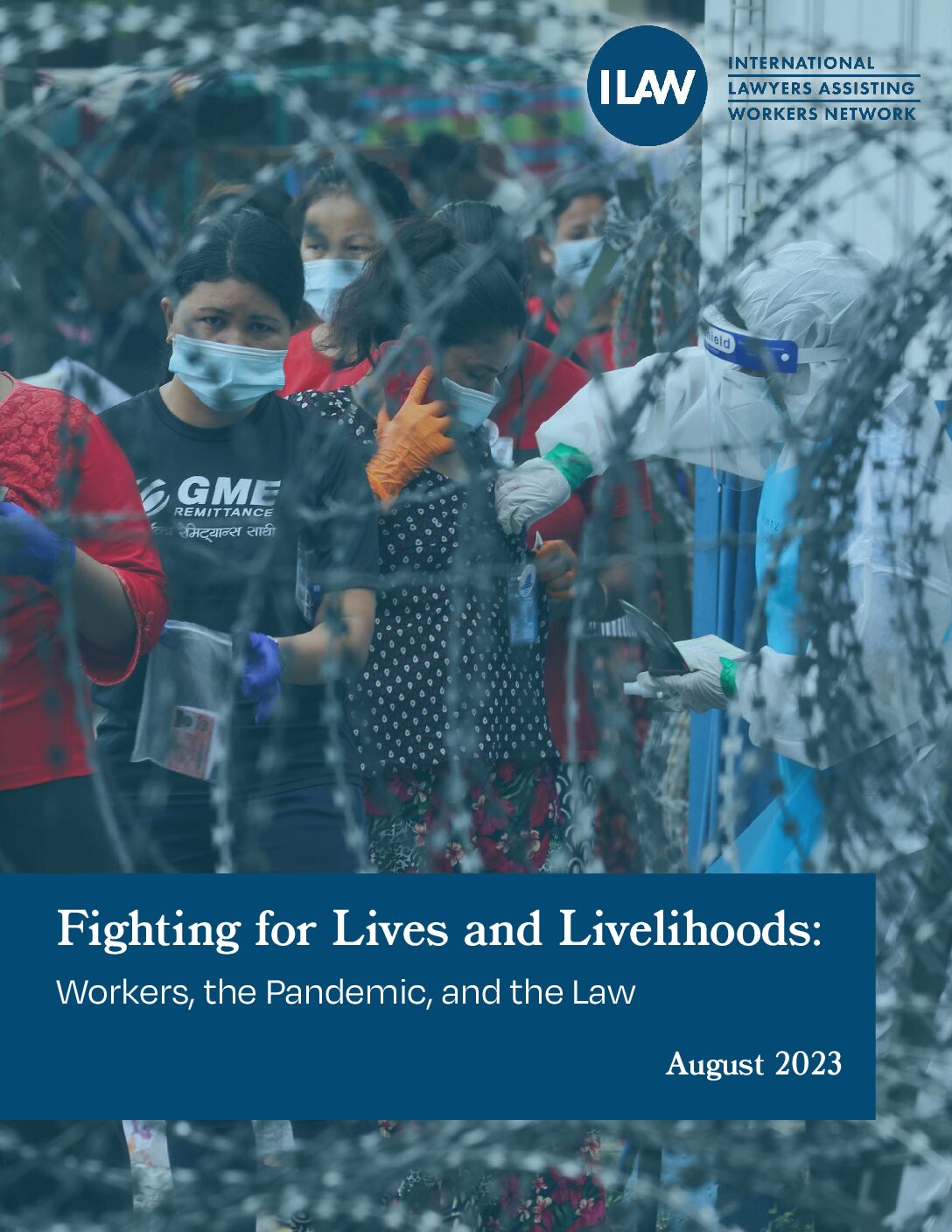
It has been widely reported that when the COVID-19 pandemic began, governments and employers were ill-informed, ill-prepared and in many cases willing to risk the lives of workers for profits-leading to occupational health and safety failures globally. This issue...
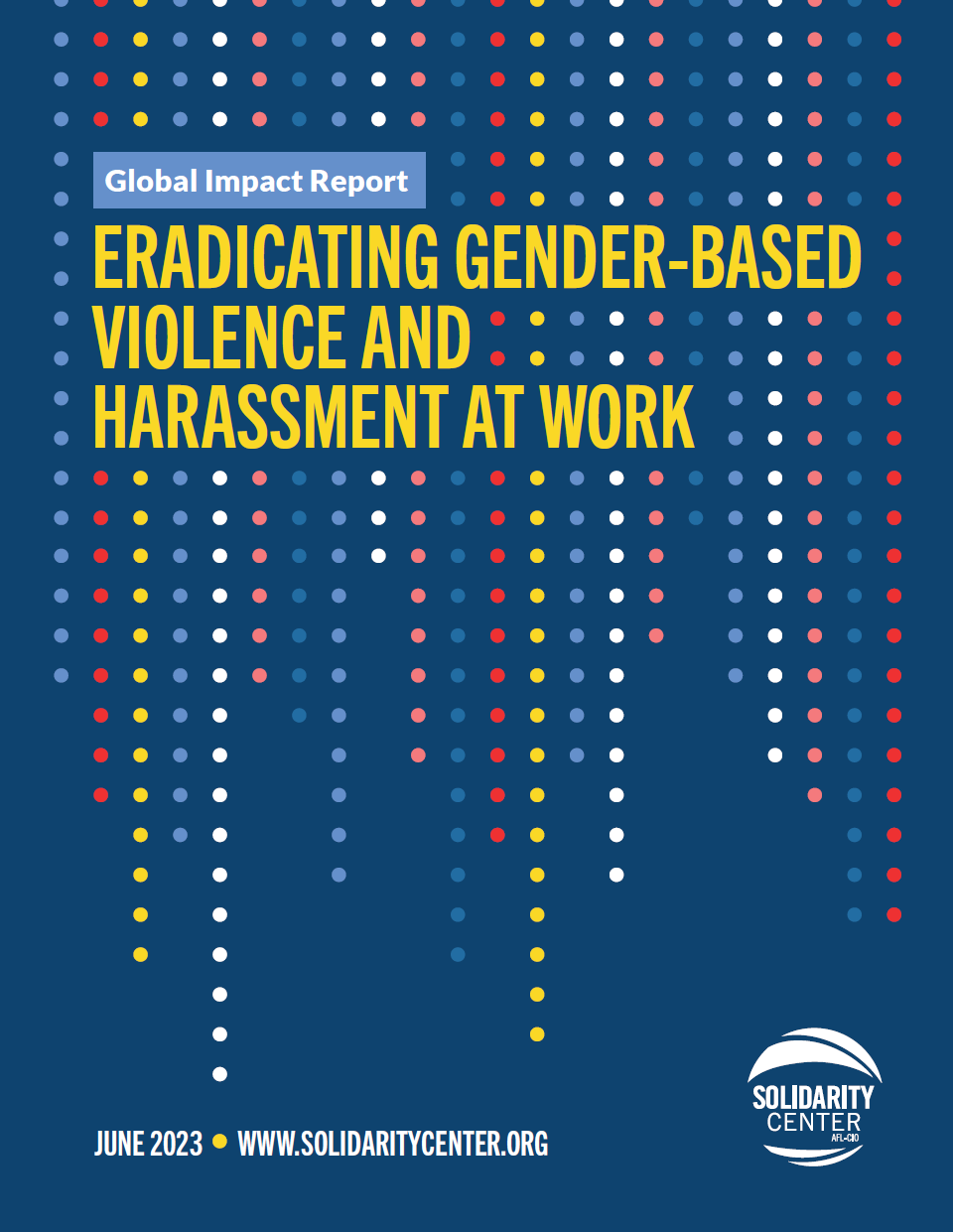
The Solidarity Center Global Impact report highlights the Solidarity Center's support of unions and civil society organizations in ending gender-based violence (GBVH) at work and showcases key outcomes, including a landmark agreement to address GBVH in Lesotho garment...
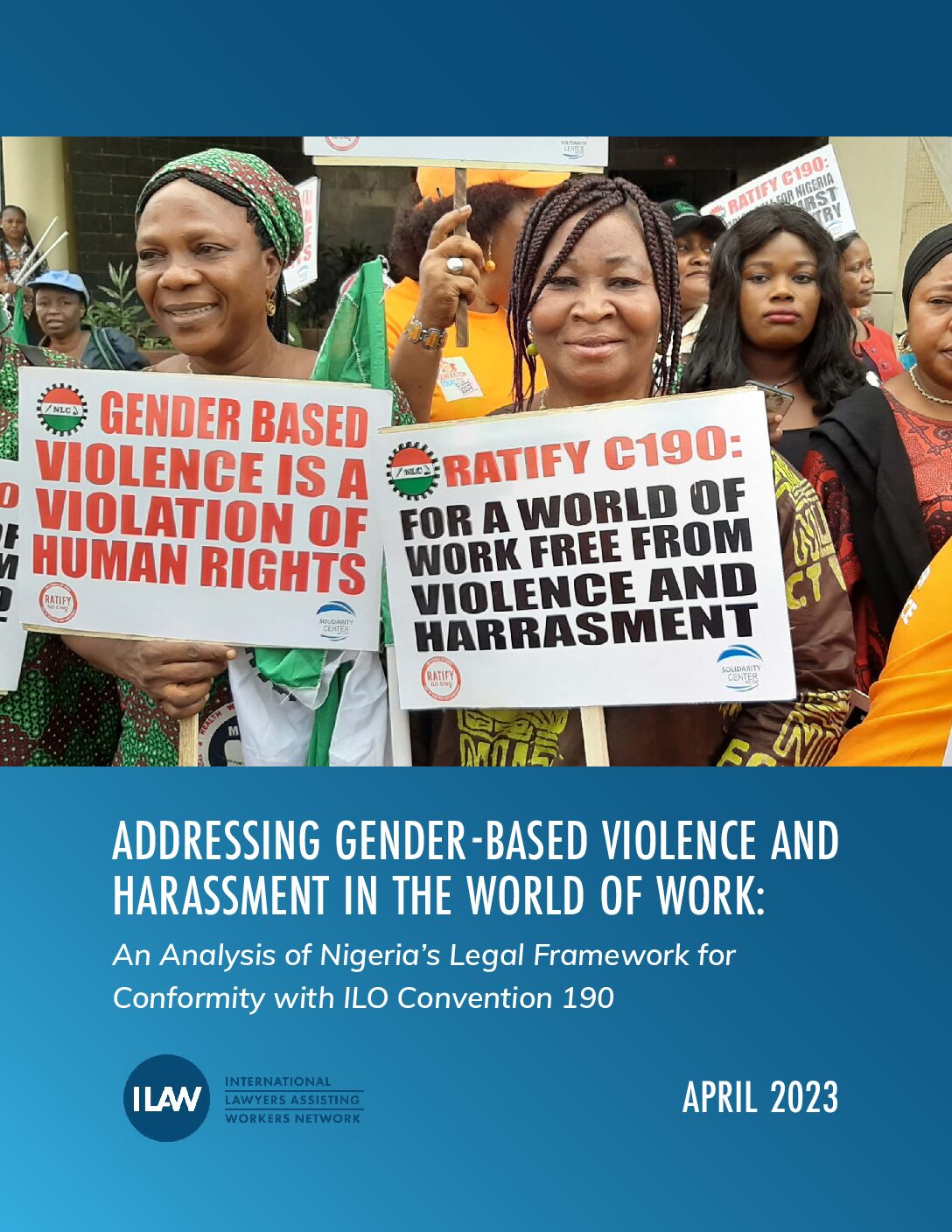
The report outlines the current legal framework in Nigeria regarding violence and harassment at work; examines key provisions of C190 and how to amend laws to fully realize these protections; and identifies opportunities for legal practitioners to utilize existing...
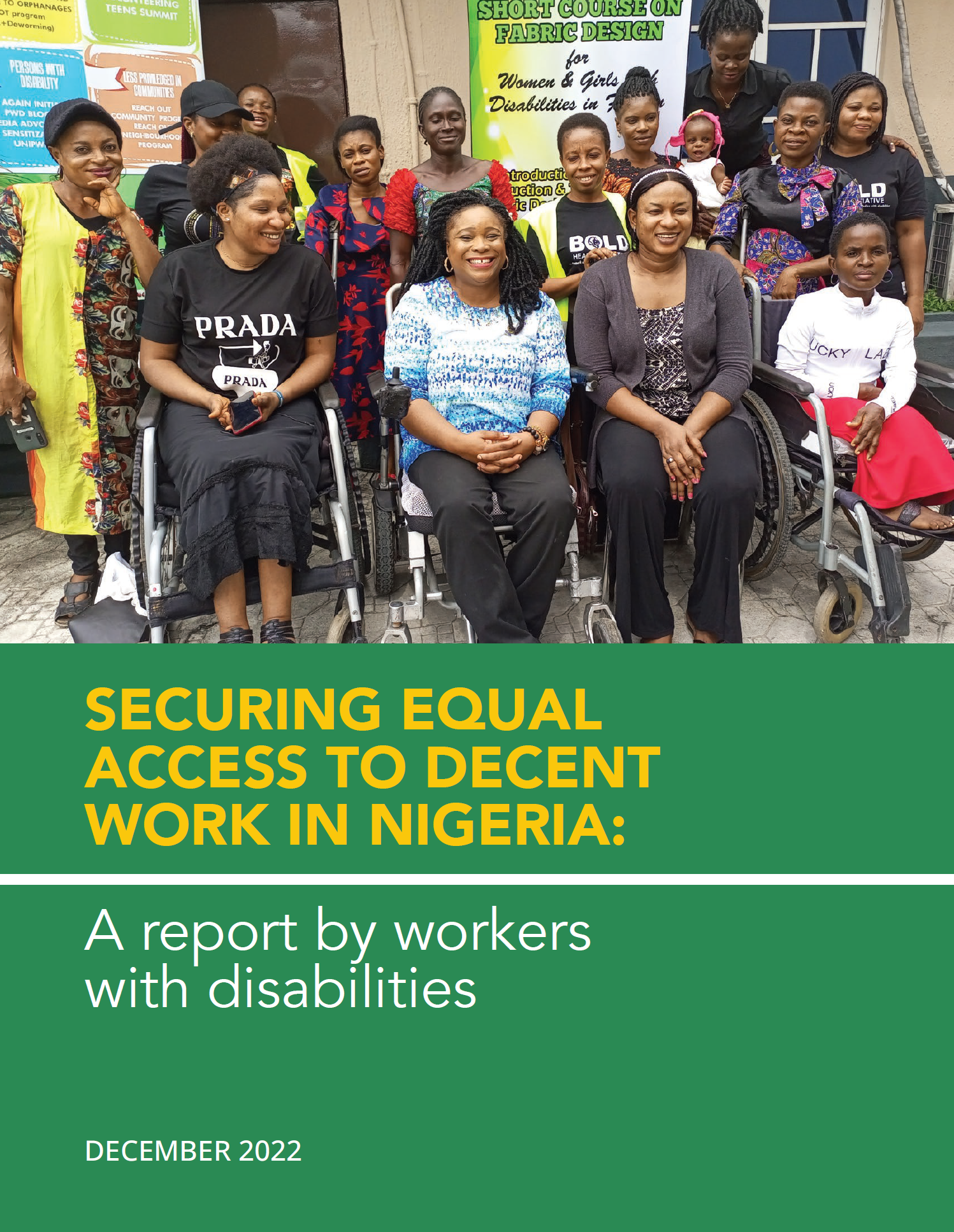
A survey of more than 600 workers with disabilities in Nigeria conducted by the Trade Union Congress of Nigeria (TUC) Women Commission and the Solidarity Center in collaboration with Nigerian unions and disability rights organizations, finds that most workers...
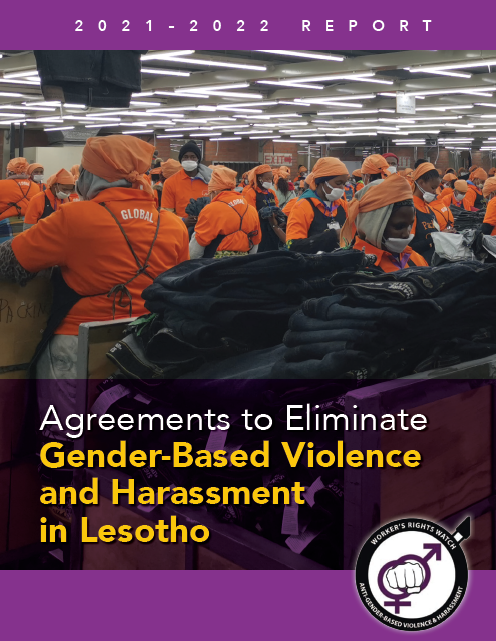
A report by Workers’ Rights Watch tracks progress on a precedent-setting, worker-centered program in Lesotho garment factories to prevent gender-based violence and harassment (GBVH) of garment workers producing jeans for the global market. The Lesotho Agreements...
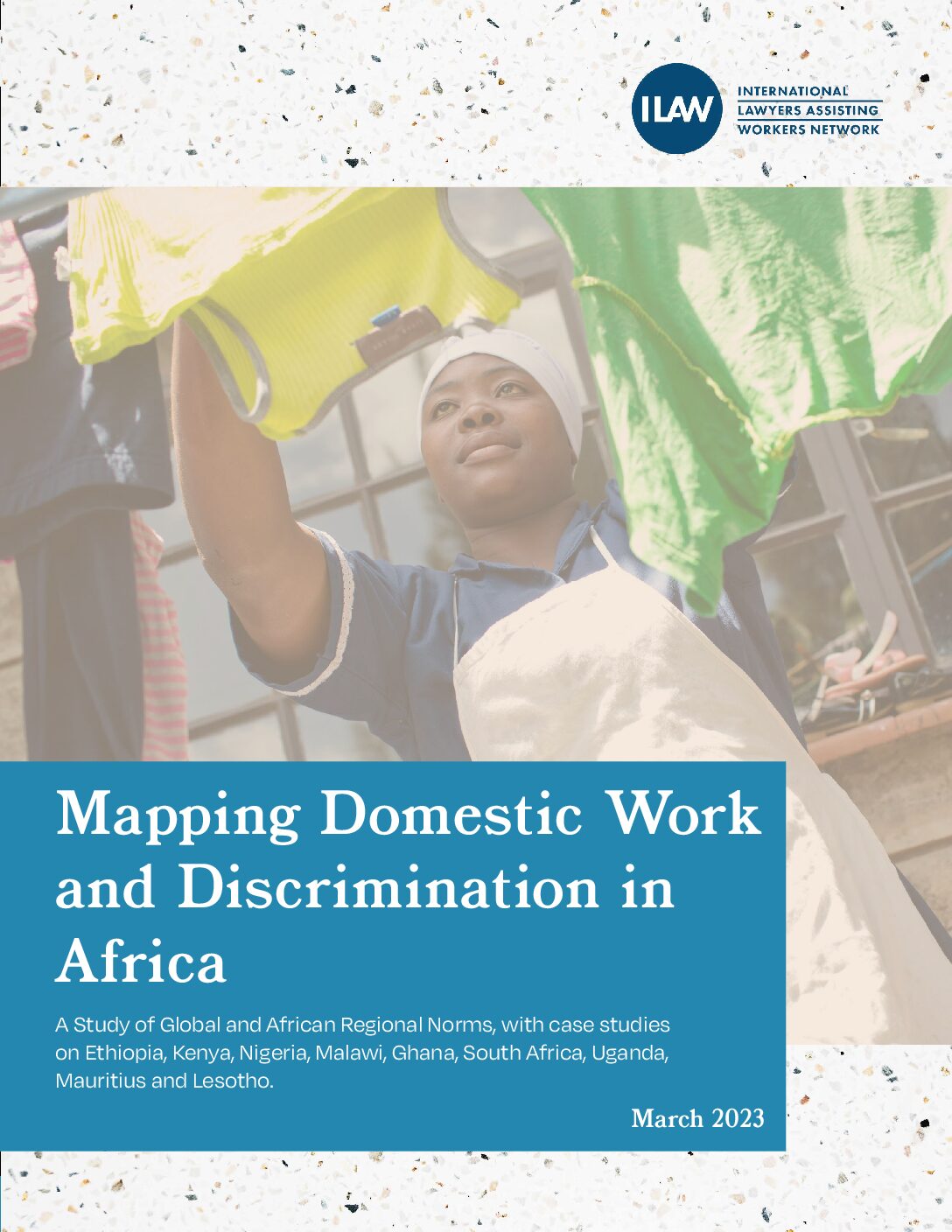
This report looks at the domestic, regional and international legal frameworks regulating domestic work in nine countries: Ethiopia, Ghana, Kenya, Lesotho, Malawi, Mauritius, Nigeria, South Africa and Uganda. Download it here.